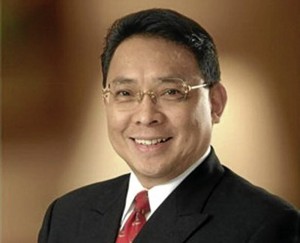Bangko Sentral ready for US default
Local monetary authorities are prepared for the worst, having a wide range of tools that can be deployed if the current impasse at the US Congress turns the world’s most traded security—US treasuries—into toxic assets.
The Bangko Sentral ng Pilipinas (BSP) said it remained confident that US lawmakers would not be foolish enough to let the world’s largest economy reach its legal borrowing limit, which would force it to default on some of its loans.
“It is unthinkable that the US government will not resolve this stalemate between the US executive and the legislature because market sentiment will turn against the US,” BSP Deputy Governor Diwa C. Guinigundo said. “They’re all aware of the implications of a US government not able to pay or amortize or pay back their obligations.”
In an e-mail to reporters, Guinigundo said that should the US government default on its loans, the BSP had enough tools to ensure that liquidity—or cash—keeps circulating in the economy.
This followed statements by Finance Secretary Cesar V. Purisima last week warning that a US default might have consequences worse than the effects of Lehman Brother’s collapse in 2008. “Their Congress has to realize the implications of defaulting on $12 trillion of outstanding debt, almost 23 times the $517 billion in debt which forced Lehman Brothers into bankruptcy in 2008,” Purisima said.
Article continues after this advertisement“Whenever there are crises like this, the first thing that gets affected is liquidity,” Guinigundo said. He said local banks have a “big” exposure to US treasuries, which are still considered one of the safest, if not the safest, investment for any fund manager.
Article continues after this advertisementHe said that in case IOUs issued by the US government have to be written off, banks would naturally resort to preserving their cash positions. This would result in banks lending less to their clients and to one other, restricting the flow of money that the economy needed to run.
One of the measures the BSP can tap to resolve this is its peso rediscounting facility, which allows banks to exchange their receivables for cash. The peso rediscounting budget of the BSP was earlier cut to P20 billion last year from a high of P60 billion at the height of the global financial crisis in 2009.
Guinigundo said the BSP was also willing to be a “lender of last resort” for banks that need dollars to lend to their clients. These dollars would come from the central bank’s foreign exchange reserves, which reached $83.03 billion as of the end of September, good for nearly a year’s worth of imported goods and services that the country needs.
“On top of that, if there is monetary space, then we can review the present monetary stance. If we need to bring it up then we will do it, if there is scope for keeping it steady then we will keep it steady,” Guinigundo said.
Other emerging markets have already moved to address the possible effects of a US default due to the possible failure to pass legislation that would allow the US to refinance its loans.
Last week, Hong Kong Exchanges and Clearing said it now classified some short-term US treasuries as riskier assets, forcing investors to put up more of these instruments as collateral seeking new loans.
